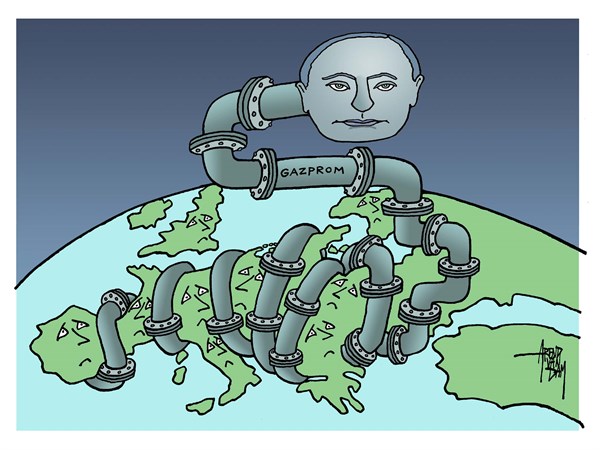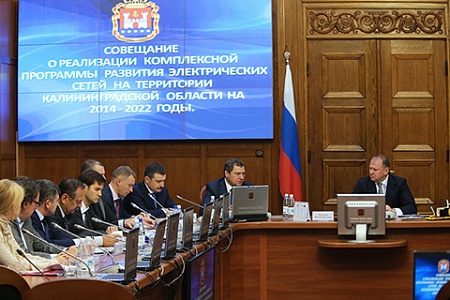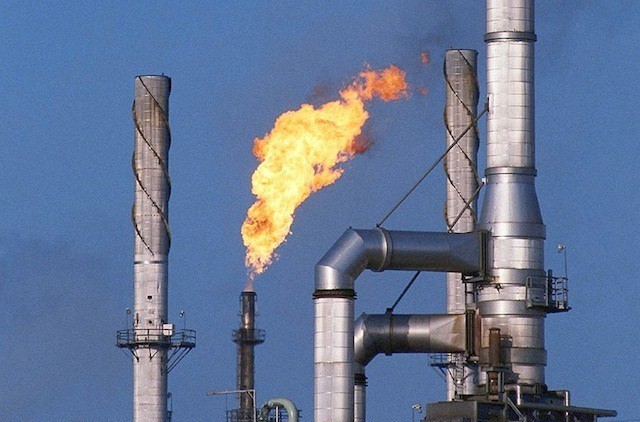The document begins with an assurance that the United States and Germany strongly support Ukraine's sovereignty, territorial integrity, independence, and European path, and reaffirm the need to take action against Russian aggression and Russia's destructive actions in Ukraine and abroad.
Further, the USA claims it supports the German and French efforts to secure peace in Ukraine through the Normandy format, and Germany says it will “intensify its efforts within the Normandy Format to facilitate the implementation of the Minsk agreements,” a series of protocols that have failed to bring peace to Ukraine due to Moscow's unwavering demands that Ukraine sees as undermining its sovereignty.
The agreement stipulates that if Moscow attempts “to use energy as a weapon or commit further aggressive acts against Ukraine,” Germany would undertake unspecified national measures and initiate EU-level actions, “including sanctions,” to restrict Russian energy exports.
The US and Germany agree that it is in the interests of Ukraine and Europe to continue the transit of Russian gas through Ukraine after 2024. Therefore, Germany vows to use all available means of influence to allow the extension of the gas transit agreement with Russia for up to ten years, and to appoint a special representative for this purpose.
It is noted that negotiations on this issue should begin as soon as possible, but no later than 1 September 2021.
Germany is committed to creating and managing a Green Fund for Ukraine that will promote its energy transition, energy efficiency, and energy security.
Germany and the United States will seek to encourage and support investments in the Green Fund of at least $1 bn, including from third parties such as the private sector.
Germany will initially add at least $175 mn to the fund as a grant and will work to increase its contributions in the coming years, the declaration said.
The fund will promote the use of renewable energy sources, promote the development of hydrogen as an energy source, increase energy efficiency, accelerate phasing out coal, and maintain carbon neutrality.
The US plans to advance the initiative with technical and strategic assistance in line with the Fund's objectives.
In addition, Germany will continue to promote bilateral energy projects with Ukraine, especially in the field of renewable energy and energy efficiency, as well as support for phasing out coal, which also includes the appointment of a special envoy with dedicated funds worth $70 mn.
Germany is also ready to launch a package of sustainability measures for Ukraine that will support Ukraine's energy security. This includes efforts to provide and increase opportunities for a reverse gas flow to Ukraine in order to fully protect Ukraine from potential future attempts by Russia to reduce gas supplies to the country.
In addition, Germany will allow Ukraine to participate in its projects to support and cooperate in the development and expansion of cyber capabilities, will support efforts to reform the Ukrainian energy sector, and will help develop options for modernizing Ukrainian gas transmission systems.
Related:
- How Ukraine can still defeat Nord Stream 2
- Two keys to defeating Nord Stream 2 lie in Poland
- Seven reasons why the USA and EU lost to the Nord Stream 2 lobbyists
- “A second Budapest memorandum”: experts on the US-Germany Nord Stream 2 deal
- US-Germany Nord Stream 2 agreement — a victory for Russia
- Strategic corruption: the new hybrid weapon against the West
- After Nord Stream-2: how Ukraine can protect its gas transit
- Mitigating the Nord Stream 2 impact on Ukraine
- Biden may lose ability to play around with Nord Stream sanctions: interview with Lana Zerkal
- Time to stop Nord Stream 2 now: open letter by Ukrainian politicians, leaders





